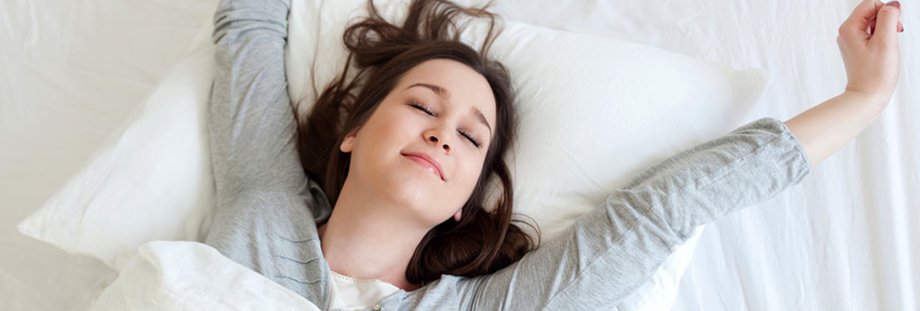What Is the Connection Between Eye Health and Sleep

The relationship between eye health and sleep is a topic of significant scientific interest. Understanding the connection between these two factors is crucial for maintaining optimal visual function and overall well-being.
This article aims to explore the importance of sleep for eye health, the detrimental effects of sleep deprivation on ocular health, the role of melatonin in promoting eye health, the impact of sleep disorders on visual function, and strategies to improve both sleep quality and eye health.
Additionally, the link between excessive screen time and ocular health will be discussed, along with recommendations for protecting the eyes during sleep.
Key Takeaways
- Adequate sleep is crucial for maintaining optimal eye function and preventing ocular conditions.
- Lack of sleep can lead to dry eye disease, eye strain, and an increased risk of glaucoma, cataracts, and age-related macular degeneration.
- Melatonin, a hormone that regulates the sleep-wake cycle, may have antioxidant and anti-inflammatory properties that protect against certain eye conditions.
- Protective measures should be taken to minimize the impact of excessive screen time and blue light exposure on eye health, such as using blue light filters and practicing the 20-20-20 rule.
The Importance of Sleep for Eye Health
The relationship between sleep and eye health is significant, as adequate sleep plays a crucial role in maintaining optimal eye function and preventing certain ocular conditions.
The importance of sleep for eye health is twofold. Firstly, during sleep, the eyes are able to rest and recover from the strain of daily activities, such as prolonged screen time or exposure to bright lights. This rest allows the eye muscles to relax, reducing the risk of eye fatigue and discomfort.
Secondly, sleep facilitates the production of tears, which are essential for maintaining the moisture and lubrication of the eyes. Insufficient sleep can lead to dry eyes, causing irritation, redness, and blurred vision.
Thus, ensuring adequate sleep is of utmost importance for the benefits of rest to support optimal eye health.
How Lack of Sleep Affects Your Eyes
Insufficient sleep can have detrimental effects on ocular health. A lack of sleep consequences in sleep deprivation can significantly impact eye health. Sleep deprivation has been associated with various ocular conditions, including dry eye disease, eye strain, and even vision loss.
One of the main reasons behind these consequences is that sleep deprivation can lead to a decrease in tear production, resulting in dry eyes. Additionally, lack of sleep can cause eye strain due to prolonged screen time or extended periods of focus on near objects.
The effects of sleep deprivation on eye health are not limited to these conditions; studies have also shown a correlation between poor sleep quality and a higher risk of glaucoma, cataracts, and age-related macular degeneration.
Therefore, it is crucial to prioritize adequate sleep for maintaining good ocular health.
The Role of Melatonin in Eye Health
This discussion will focus on the role of melatonin in eye health and its connection to sleep.
Melatonin is a hormone produced by the pineal gland that regulates the sleep-wake cycle and has been found to have potential benefits for eye health.
Studies have shown that melatonin may have antioxidant and anti-inflammatory properties that can protect against certain eye conditions and improve overall ocular health.
Melatonin and Eye Health
One potential factor to consider in the connection between eye health and sleep is the role of melatonin.
Melatonin is a hormone produced by the pineal gland in response to darkness, and it plays a crucial role in regulating the sleep-wake cycle.
However, melatonin also has effects on the visual system and eye health.
Studies have suggested that melatonin may have protective effects on the retina and may help prevent certain eye diseases, such as age-related macular degeneration and glaucoma.
Additionally, melatonin has been shown to influence various aspects of vision, including visual acuity, contrast sensitivity, and color vision.
However, more research is needed to fully understand the effects of melatonin on vision and its potential implications for eye health.
Sleep and Eye Health
The relationship between sleep and the health of the eyes is an area of interest that requires further investigation to fully comprehend the potential implications.
While the importance of sleep for overall health and well-being is well-established, its specific impact on eye health is still being explored.
One area of interest is the benefits of napping. Research suggests that short daytime naps can improve alertness, cognitive function, and overall performance. Moreover, napping has been found to positively affect eye health by reducing eye strain and dryness.
Another area of investigation is the connection between sleep apnea and eye health. Sleep apnea, a sleep disorder characterized by interrupted breathing during sleep, has been linked to various eye conditions, including glaucoma and optic neuropathy.
Understanding these connections could lead to improved strategies for preserving and promoting eye health through adequate sleep.
Sleep Disorders and Their Impact on Eye Health
Sleep disorders, such as insomnia and obstructive sleep apnea, have been found to negatively impact eye health. Lack of quality sleep can lead to various eye problems, including dry eyes, eye strain, and even more serious conditions like glaucoma and macular degeneration. Sleep disorders affect the overall health of an individual, and their impact on eye health should not be overlooked.
Treatment options for sleep disorders vary depending on the specific condition. For insomnia, behavioral therapy, medication, and relaxation techniques are commonly used. Obstructive sleep apnea can be managed through continuous positive airway pressure (CPAP) therapy, oral appliances, surgery, and lifestyle changes. It is important for individuals with sleep disorders to seek proper diagnosis and treatment to improve their overall well-being, including their eye health.
The following table provides a summary of common sleep disorders, their impact on eye health, and treatment options:
| Sleep Disorder | Impact on Eye Health | Treatment Options |
|---|---|---|
| Insomnia | Dry eyes, eye strain | Behavioral therapy, medication, relaxation techniques |
| Obstructive sleep apnea | Glaucoma, macular degeneration | Continuous positive airway pressure (CPAP) therapy, oral appliances, surgery, lifestyle changes |
| Restless leg syndrome | Eye discomfort | Medication, lifestyle changes, compression stockings, massage |
| Narcolepsy | Dry eyes, blurred vision | Medication, lifestyle changes, scheduled naps |
Tips for Improving Sleep Quality and Eye Health
This discussion aims to explore two key points related to sleep quality and eye health:
- The impact of blue light: Blue light, emitted by electronic devices and energy-efficient lighting, has been found to disrupt the body’s natural sleep-wake cycle and potentially contribute to various health issues, including eye strain and sleep disorders.
- The importance of regular sleep: Understanding the impact of blue light can inform individuals on the need to limit exposure and adopt healthy sleep habits, such as maintaining a consistent sleep schedule, to promote overall well-being and preserve eye health.
Blue Light’s Impact
Blue light emitted from electronic devices has been found to have a significant impact on eye health. The main concern regarding blue light is its potential to cause eye strain. Prolonged exposure to blue light can lead to symptoms such as dry eyes, blurred vision, and eye fatigue. The effects of blue light on vision are not limited to immediate discomfort; research suggests that it may contribute to long-term vision problems as well.
Here are three key effects of blue light on vision:
- Disruption of the sleep-wake cycle: Blue light can suppress the production of melatonin, a hormone that regulates sleep. Exposure to blue light in the evening can interfere with the circadian rhythm and disrupt sleep patterns.
- Increased risk of age-related macular degeneration: Studies have shown that chronic exposure to blue light may contribute to the development of age-related macular degeneration, a leading cause of vision loss in older adults.
- Potential for retinal damage: Recent research has suggested that blue light may cause damage to the retina, the light-sensitive tissue at the back of the eye, which could potentially lead to vision impairment.
Given the potential impact of blue light on eye health, it is important to take measures to protect our eyes from excessive exposure, especially in the evening hours.
Importance of Regular Sleep
The regularity of sleep patterns plays a crucial role in maintaining overall physical and cognitive well-being. A consistent sleep schedule has numerous benefits, including improved mood, increased alertness, and enhanced cognitive function.
When it comes to eye health, the relationship between sleep duration and eye health is important. Insufficient sleep can lead to dry eyes, eye strain, and even increased risk of eye diseases such as glaucoma and macular degeneration.
Furthermore, irregular sleep patterns can disrupt the body’s natural circadian rhythm, impacting the production of melatonin, a hormone that regulates sleep and wakefulness. This disruption can affect the quality of sleep and, consequently, the health of the eyes.
Therefore, maintaining a consistent sleep schedule and ensuring an adequate duration of sleep is essential for promoting and preserving optimal eye health.
The Link Between Screen Time and Eye Health
Excessive exposure to screens has been associated with detrimental effects on eye health. Studies have shown that long hours spent in front of screens can lead to a variety of eye-related problems. One of the main culprits is the blue light emitted by screens, which has been found to cause retinal damage and contribute to the development of age-related macular degeneration.
Additionally, excessive screen time can lead to symptoms such as eye strain, dry eyes, and blurred vision. The effects of excessive screen time on eye health can be further exacerbated by poor viewing habits, such as sitting too close to the screen or not taking regular breaks.
It is important to be mindful of the impact of screen time on eye health and take steps to protect our eyes, such as using blue light filters and practicing the 20-20-20 rule (taking a 20-second break every 20 minutes to look at something 20 feet away).
How to Protect Your Eyes While Sleeping
Protective measures and eye exercises can be beneficial in maintaining eye health while sleeping.
One protective measure is to ensure a dark and quiet sleep environment. This can be achieved by using blackout curtains or an eye mask to block out any light that may disrupt sleep. Additionally, using a humidifier can prevent dryness and irritation of the eyes during sleep.
Eye exercises, such as blinking and focusing on distant objects, can help relax the eye muscles and reduce eye strain. It is also important to avoid excessive screen time before bed, as this can lead to digital eye strain.
Taking breaks during the day to rest the eyes and practicing good sleep hygiene, such as getting enough sleep and maintaining a regular sleep schedule, are additional measures that can contribute to overall eye health.
Frequently Asked Questions
How Many Hours of Sleep Are Recommended for Maintaining Good Eye Health?
The recommended sleep duration for maintaining good eye health is vital due to the importance of sleep in promoting optimal ocular functioning. Adequate sleep allows for proper eye lubrication, reduces eye strain, and supports overall eye health.
Can Lack of Sleep Cause Permanent Damage to the Eyes?
The long-term effects of sleep deprivation on the eyes include the potential for permanent damage. Lack of sleep can lead to various eye problems, such as dry eyes, eye fatigue, and increased risk of eye diseases.
Does Melatonin Play a Role in Preventing Eye Diseases?
The potential benefits of melatonin in preventing eye diseases have been explored. Some studies suggest that melatonin supplements may have protective effects on the eyes due to their antioxidant and anti-inflammatory properties.
What Are Some Common Sleep Disorders That Can Negatively Impact Eye Health?
Common sleep disorders, such as insomnia and sleep apnea, can have negative effects on eye health. Lack of quality sleep can lead to dry eyes, eye strain, and increased risk of developing eye diseases. Strategies for improving sleep can promote better eye health.
Are There Any Specific Exercises or Techniques That Can Improve Both Sleep Quality and Eye Health?
Eye yoga exercises and the use of blue light filters have been suggested as techniques to improve both sleep quality and eye health. These methods aim to reduce eye strain and minimize exposure to harmful blue light from electronic devices.







